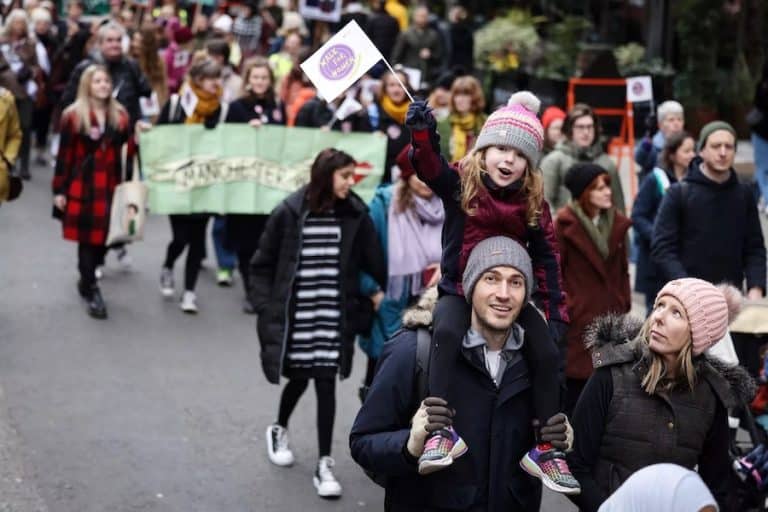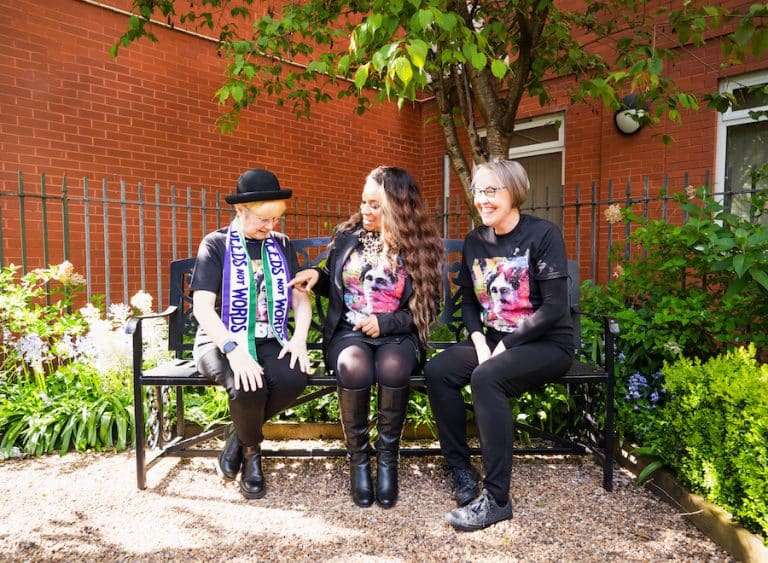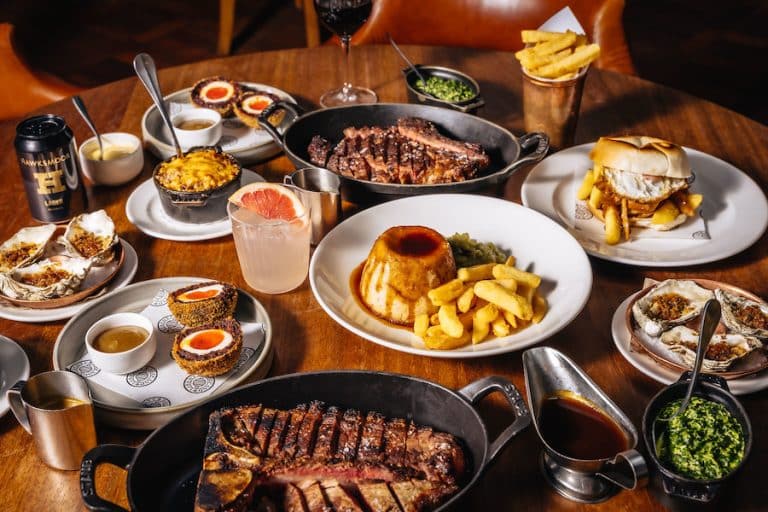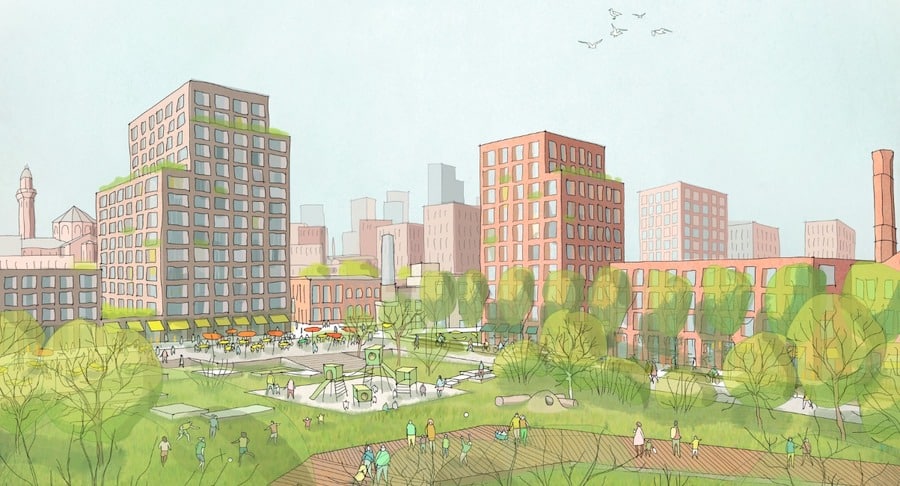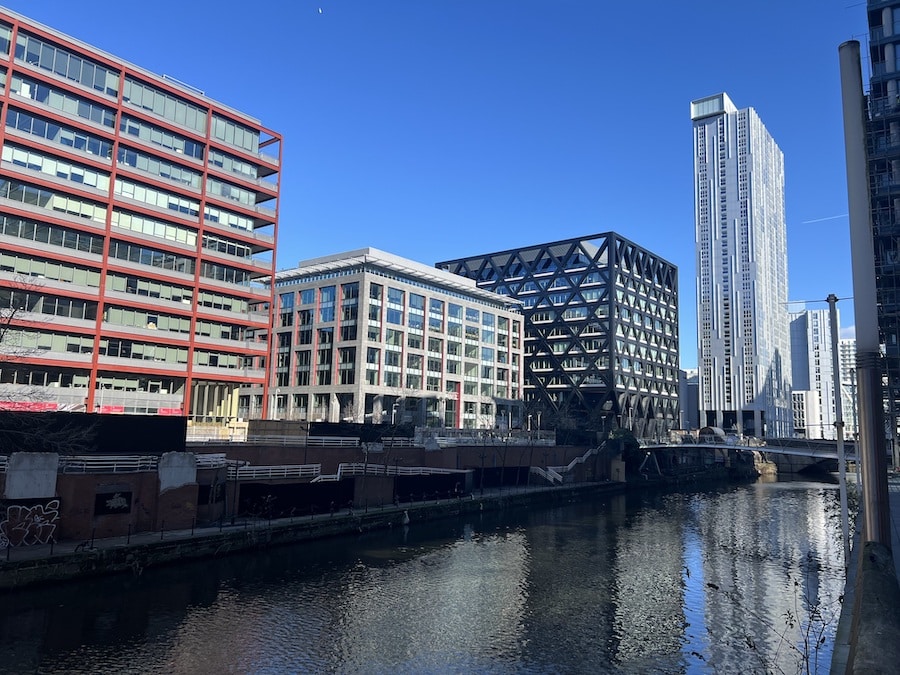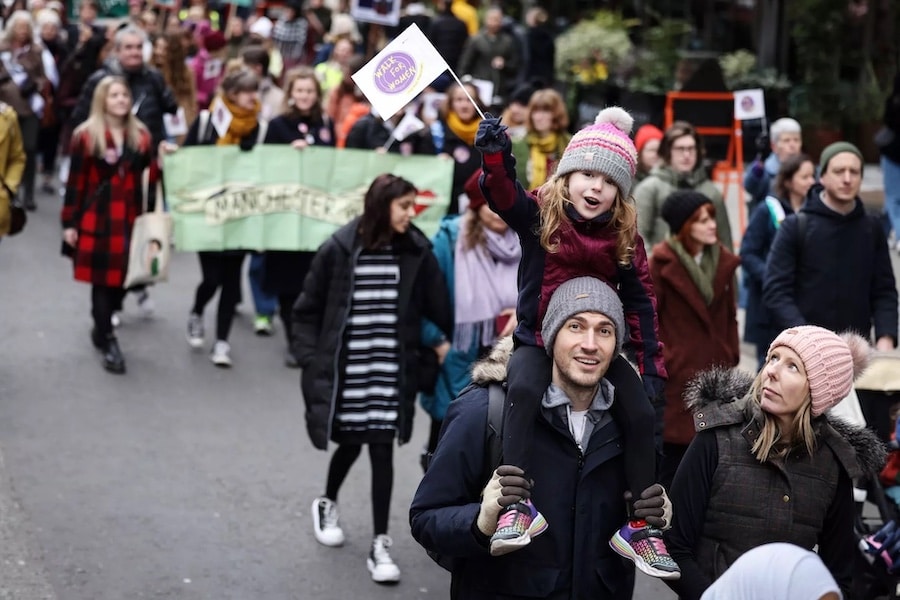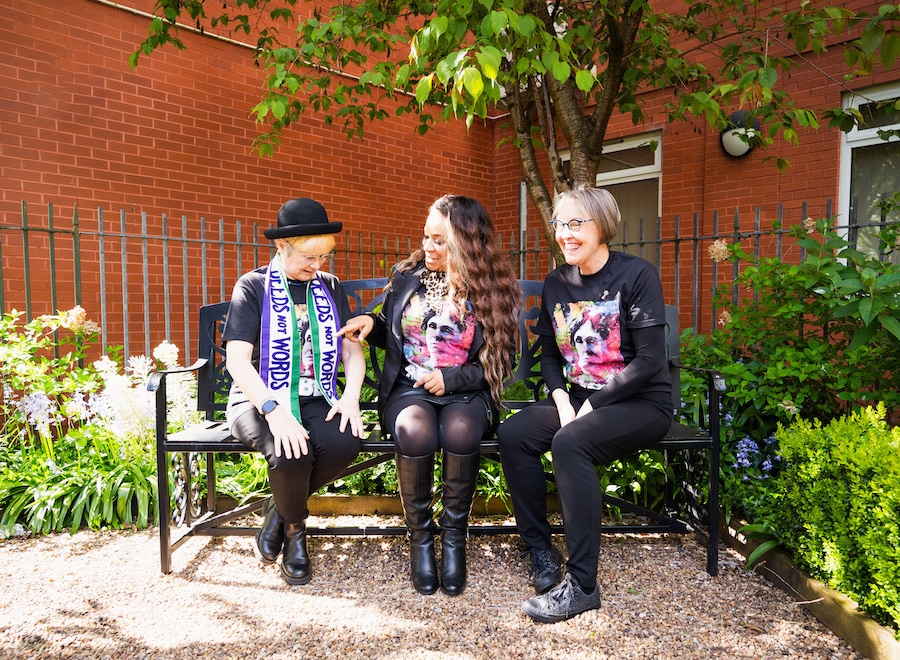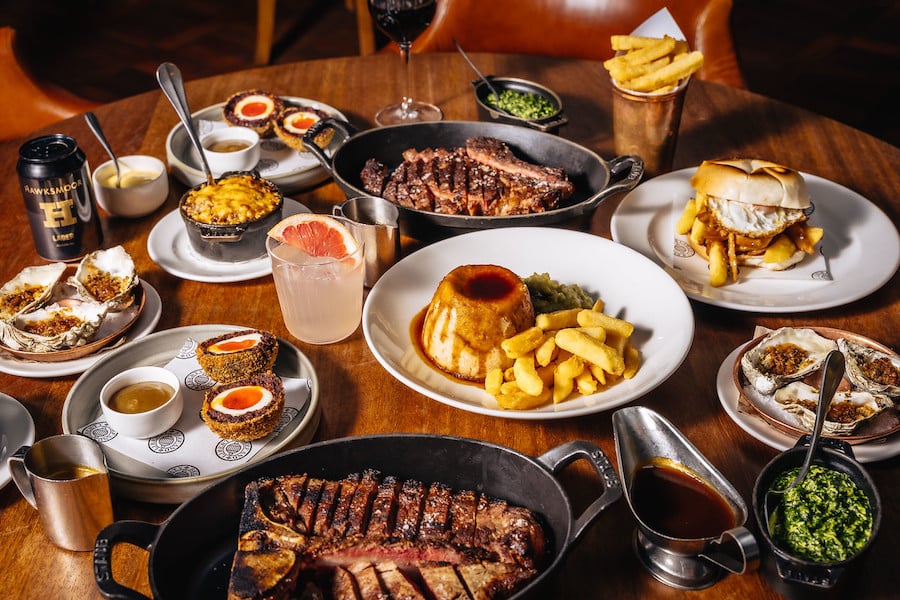“Greener cities mean healthier lives” Meet the community group transforming Manchester’s derelict spaces
- Written by Thom Bamford
- Last updated 5 months ago
- City of Manchester, Community, Featured, People
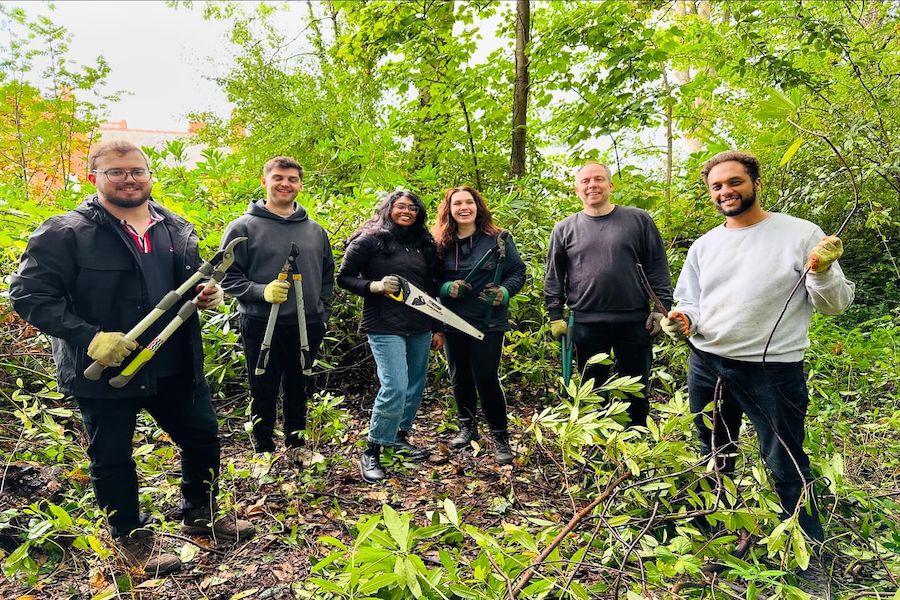
Sow the City, a community interest company, is transforming some of the most deprived parts of Manchester, turning derelict urban land into thriving green spaces.
At the heart of this organisation is Jon Ross, a visionary with a unique background in cognitive science, environmental management, and a deep-rooted love for the natural world.
Sow the City – the beginnings
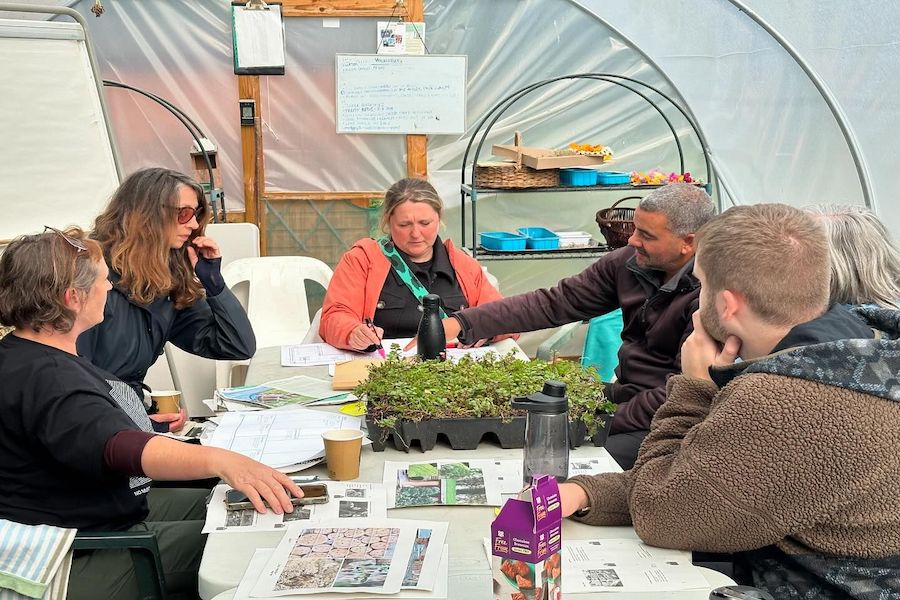
Jon Ross’s journey into urban sustainability is anything but conventional.
After leaving school, Jon pursued a degree in cognitive science at Exeter University, a field that brought together psychology and computer science.
Though AI was far from the trendy field it is today, his curiosity for complex systems would soon translate into a passion for tackling the ecological and social systems of cities.
After university, Jon embarked on a transformative trip across Asia, where he experienced the vibrant ecosystems of places like the rainforest in Sumatra.
“It was amazing to go somewhere so diverse,” he said, reflecting on how the trip fuelled his desire to pursue a career focused on environmental sustainability.
This pivotal experience led him back to academia, where he earned a Master’s degree in environmental management at Manchester University.
From noise nuisance to environmental activism
Jon’s first foray into the environmental sector came through what some might consider an unusual route—working for the Manchester City Council, handling noise nuisance cases.
“I dealt with barking dogs and noisy students.
“Environmental health has got a lot of powers, and can even break down doors to confiscate DJ equipment if necessary,” Jon said with a laugh.
It was during this time that Jon honed his skills in addressing environmental issues in urban settings.
His subsequent roles in the private sector—working as an environmental manager for a wallpaper factory—and in public sector jobs at Transport for Greater Manchester, allowed him to expand his understanding of sustainability, biodiversity, and renewable energy projects such as hydroelectric power and wind turbines.
But Jon was eager to make a more direct impact on the people and the city he loved.
This desire for change would lead him to the next chapter of his career—starting Sow the City.
Sow the City is born
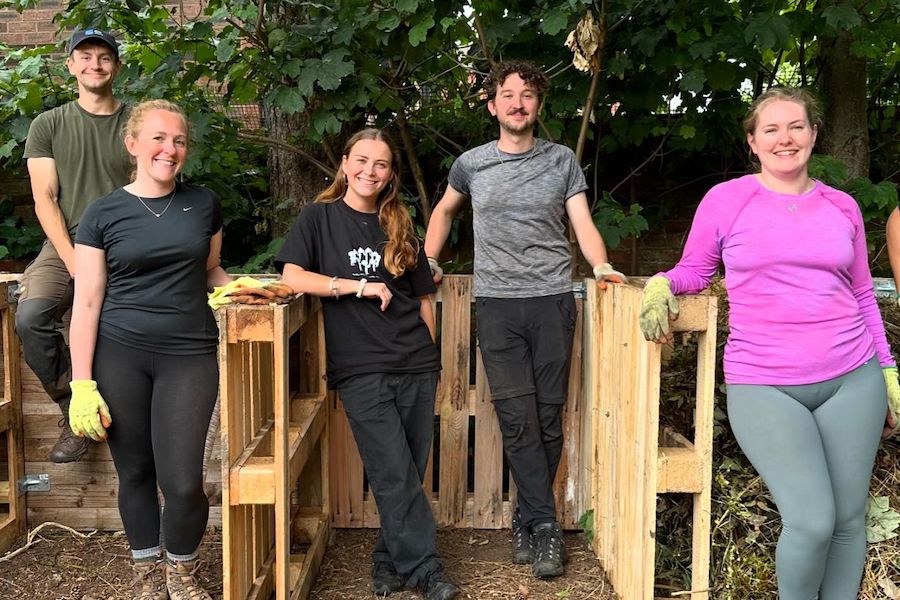
The seed for Sow the City was planted with a few packets of vegetable seeds and some compost.
“I was working part-time for the local authority and applied for a grant of £2,000 from an organisation called Unltd,” Jon explained.
With that modest grant, he began helping people in his local community of Manchester grow food in their back gardens.
From these humble beginnings, Sow the City has blossomed into an organisation that has transformed 14,000 m2 of derelict and unused land into new green spaces, provided 15,000 hours of volunteering time and 21,000 people have attended their activities and workshops.
The organisation’s work is particularly focused on Manchester’s most disadvantaged areas, where access to green space is limited.
For Jon, the mission is simple but profound: “We create new green spaces all over Manchester, particularly in the parts of the city that need it the most.”
Nature as a tool for well-being
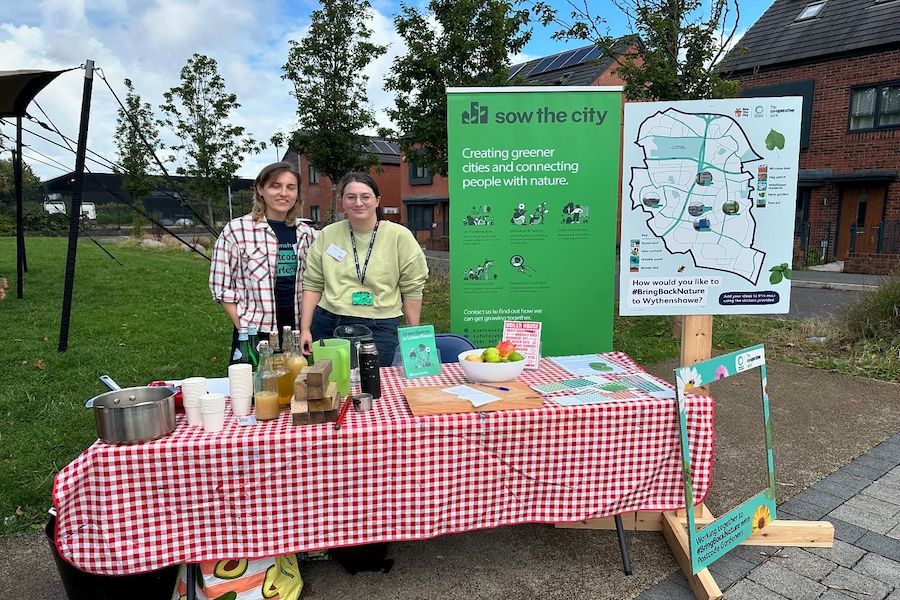
Sow the City is more than just about greening urban areas—it’s about improving mental and physical well-being through connection with nature.
One of the standout projects is their gardening on prescription initiative, which Jon describes as “gardening for mental health.”
This project, in partnership with the NHS, provides gardening activities for patients, particularly those struggling with mental health challenges.
The therapeutic benefits of spending time in nature are well-documented, and Sow the City aims to harness these benefits for some of the city’s most vulnerable residents.
One project that exemplifies this approach is the Green Health Walk at Prestwich Hospital.
What began as an ecological survey of the area around the hospital has evolved into a nature trail designed to help patients, staff, and visitors reconnect with the natural world.
“It’s a bit like going to a wildlife reserve,” Jon explained.
“There’s a food-growing garden, a little woodland area, an orchard, and even an area where they have bats.”
The Green Health Walk was so successful that it became one of only five national case studies presented at COP26, the UN’s climate change conference.
Jon emphasises that staying inside hospital walls isn’t always conducive to healing: “Sometimes after difficult conversations, you need to get some air. This project brings the work we do to the people who need it most.”
The Boiler House
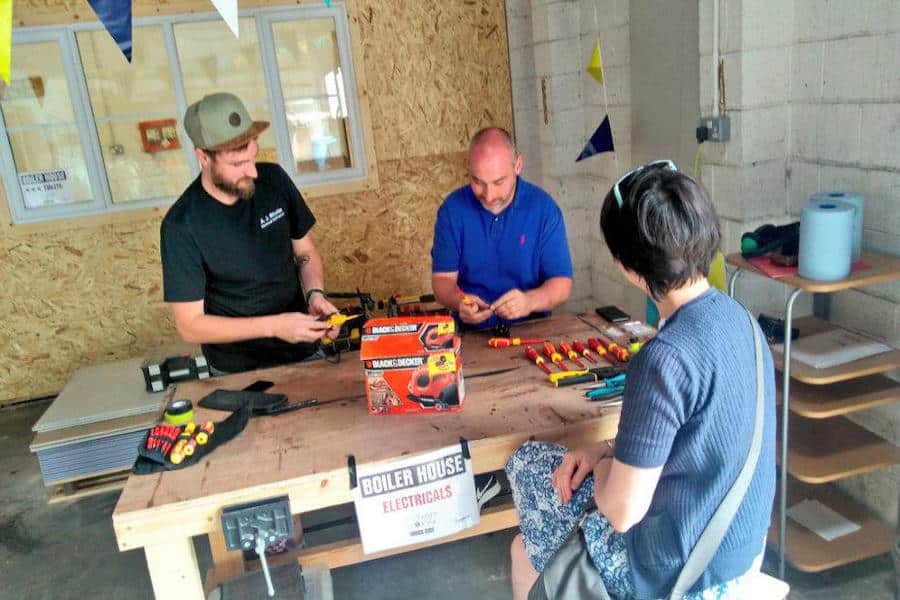
In addition to transforming green spaces, Sow the City has created a hub for sustainability through its work at The Boiler House, a former industrial building in Moss Side.
The Boiler House opened its doors in 2019 and is home to a range of environmental projects centred on the idea of a circular economy.
Here, volunteers run a repair café where electrical items, furniture, and clothing are fixed for free.
“We tackle the cost of living crisis by helping people save money, and at the same time, we reduce waste,” said Jon.
One of the standout features of The Boiler House is its mini plastic recycling plant, aptly named Precious Plastic.
This small-scale facility grinds down plastic waste, melts it, and transforms it into new products.
The site also hosts upcycling workshops and an e-bike courier service, further promoting eco-friendly living.
The diversity of projects run at The Boiler House reflects Jon’s holistic approach to sustainability: it’s not just about creating green spaces, but also about reducing waste, reusing materials, and building stronger communities.
A movement for green cities
Since its inception, Sow the City has grown from a small local initiative into a well-respected organisation involved in policymaking, both locally in Greater Manchester and nationally.
“We’ve grown into a much bigger organisation than we were,” Jon explained, “We want to create a movement of people that care about nature in cities.”
With over 100 ongoing projects each year, Sow the City is not only transforming Manchester but also building a network of like-minded organisations across the UK.
Jon sees this network as crucial to the future of urban sustainability, and the organization is increasingly focused on building resilience within the sector.
Sustainability tips
Jon is the first to admit that living sustainably isn’t always easy. “I’m not perfect,” he said, “but we’re human beings on Earth, and we’ve all got an impact.”
He offers three practical tips for those looking to reduce their environmental footprint:
Think about what you eat: “Try to avoid eating a lot of red meat or meat in general, and try to eat seasonally. About one-third of our carbon footprint is related to food—deforestation, fertilisers, and transport. It’s one of the most polluting industries in the world.”
Fly less: “Aeroplanes are almost as efficient as cars in terms of carbon dioxide per mile, but they go so fast and so far. Cutting down on flights can make a big difference.”
Improve home insulation: “It might sound boring, but improving insulation in your home can have a huge impact on energy use and heating costs.”
Building a greener future in Manchester
As Sow the City looks to the future, the organisation remains committed to its mission of empowering communities to create greener cities and connect with nature.
Whether through food-growing initiatives, mental health gardening programs, or sustainability projects at The Boiler House, Jon Ross and his team are proving that cities can be places where both people and nature thrive.
“We’ve already come a long way,” Jon said, “but there’s so much more we can do.
“I’m excited to see how we can continue to grow, expand our network, and make an even bigger impact on the health of our communities and our planet.”
For anyone looking to make a difference in their local area, Jon’s message is clear: “Get in touch and volunteer with us! Whether as an individual or through your company, there’s always something you can do to help create a greener, healthier city.”
Sow the City has a blueprint for how urban spaces can be transformed—not just for the benefit of the planet, but for the well-being of the people who live in it.
And the seeds they are planting today will undoubtedly yield a greener, more sustainable tomorrow.
You can find out more about Sow the City by clicking here
- This article was last updated 5 months ago.
- It was first published on 2 October 2024 and is subject to be updated from time to time. Please refresh or return to see the latest version.
Did we miss something? Let us know: [email protected]
Want to be the first to receive all the latest news stories, what’s on and events from the heart of Manchester? Sign up here.
Manchester is a successful city, but many people suffer. I Love Manchester helps raise awareness and funds to help improve the lives and prospects of people across Greater Manchester – and we can’t do it without your help. So please support us with what you can so we can continue to spread the love. Thank you in advance!
An email you’ll love. Subscribe to our newsletter to get the latest news stories delivered direct to your inbox.
Got a story worth sharing?
What’s the story? We are all ears when it comes to positive news and inspiring stories. You can send story ideas to [email protected]
While we can’t guarantee to publish everything, we will always consider any enquiry or idea that promotes:
- Independent new openings
- Human interest
- Not-for-profit organisations
- Community Interest Companies (CiCs) and projects
- Charities and charitable initiatives
- Affordability and offers saving people over 20%
For anything else, don’t hesitate to get in touch with us about advertorials (from £350+VAT) and advertising opportunities: [email protected]


Legendary Manchester restaurant to undergo “huge transformation” under new ownership







